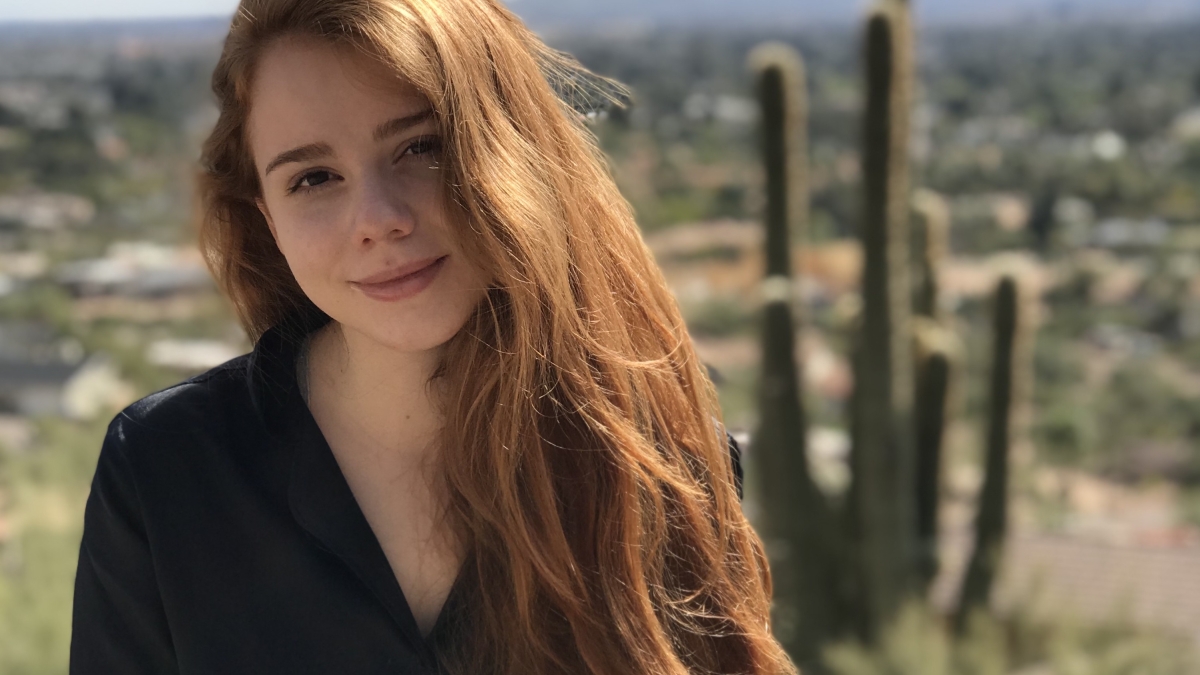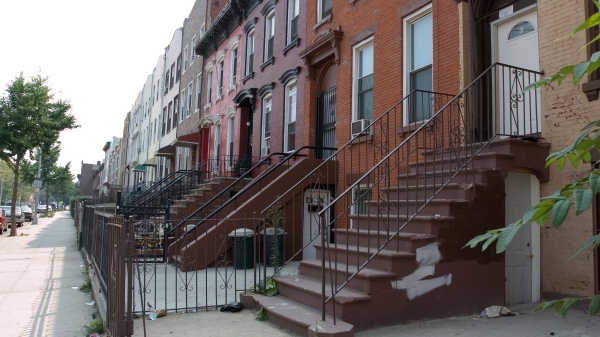Open doors and opportunities help biology master’s degree graduate find research niche

Born and raised in Tempe, School of Life Sciences graduate student Avery Underwood always wanted to attend Arizona State University. She found a perfect research fit in assistant professor Melissa Wilson's lab.
Editor’s note: This is part of a series of profiles for spring 2019 commencement.
Avery Underwood heard her mom say it her entire life: It’s not how you start. It’s how you finish.
This really hit home for Underwood, who is graduating with her Master of Science in biology from the School of Life Sciences this spring.
She knew she wanted to study biology, but she began her research career indecisively, wandering through wet labs and behavioral labs. Nothing stuck.
“I realize now that very few people honestly know what they are passionate about at first and it is totally OK to gain experience to see where you fit in. That’s one of the things I love most about ASU,” Underwood said. “There are so many open doors and opportunities to learn, and I feel very lucky that I finally found my research niche.”
When Underwood found out that she would be graduating a year early and had to apply for the accelerated Masters of Science program immediately if she wanted to continue doing research, she remembered a guest lecture by School of Life Sciences assistant professor Melissa Wilson that always stuck with her and she decided to reach out.
Underwood remembers walking into Wilson’s office with transcripts and resumes, feeling incredibly nervous, but as soon as the meeting started, she felt completely at ease. She explained that she didn’t know anything about bioinformatics but was eager to learn and Wilson accepted her immediately.
“Looking back now, I realize that things have a way of falling into place. I think that is something many people can relate to,” Underwood said.
Question: What was your “aha” moment, when you realized you wanted to study the field you majored in?
Answer: With a pre-med background, I have always loved the sciences. However, it wasn’t until graduate school that I found my research niche — genomics and bioinformatics. When I was a freshman at ASU, Professor Melissa Wilson gave a guest lecture in my BIO 189 class talking about her background in mathematics and her research on sex differences. Of all my professors, I never forgot how impressed and intrigued I was by her work. So, when I applied to graduate school here at ASU, I immediately reached out to her about working in her lab. The rest is history!
Q: What’s something you learned while at ASU — in the classroom or otherwise — that surprised you, that changed your perspective?
A: Attending such a diverse school as ASU, the opportunity to interact and learn from professors and students from all walks of life has truly given me a more cosmopolitan view of the world.
Q: Why did you choose ASU?
A: I was born and raised in Tempe, Arizona. In high school, I earned a full-ride scholarship to college as class valedictorian, so attending ASU was a no-brainer. I grew up with ASU in my backyard and always felt the strong presence of the university in the community — something that also attracted me to the school.
Q: Which professor taught you the most important lesson while at ASU?
A: My adviser, Professor Melissa Wilson, was one of my role models throughout college. She is an inspirational leader who is always there for her students and she taught me to not take life so seriously.
Q: What’s the best piece of advice you’d give to those still in school?
A: It’s not the start that matters in life, it’s how you finish. I grew up with my mom always telling me that and it’s become one of my mantras in adulthood. But I really do believe in that statement because I’ve lived it. It doesn’t matter where or when you start, what matters is proving to yourself that you can be tenacious enough to stick with it and see things through to the very end. I think that is something to always be proud of, and those kinds of people are my role models.
Q: What was your favorite spot on campus, whether for studying, meeting friends or just thinking about life?
A: Before having my own desk in lab, my favorite spot was the Learning Resource Center at the School of Life Sciences where I tutored undergraduate students in various life sciences classes. It was my favorite spot for studying and commiserating with my peers — griping about homework and exams.
Q: What are your plans after graduation?
A: I want to give back to the community in the largest way possible, so figuring out how to intersect my passions with that goal is my main plan. This summer after graduation, I am going to spend some time studying sex-biased gene expression in brain tissue samples from Alzheimer’s patients. I am very passionate about Alzheimer’s research, so I am excited for the opportunity. The work is actually in Melissa’s lab. I just don’t want to leave ASU yet! I guess I’m kind of weird because I have always loved learning and school.
Q: If someone gave you $40 million to solve one problem on our planet, what would you tackle?
A: I am very inspired by the Bill and Melinda Gates Foundation and their philanthropic efforts. My little sister has autism, and for many years, I’ve been involved with volunteering for the Zoo Walk for Autism and have supported events put on by Southwest Autism Research and Resource Center here in the Valley. My little sister is a huge inspiration to me. Being involved in organizations that are dedicated to better understanding autism have inspired me to become more educated about all aspects of biomedical research.
Q: Describe some challenges or hurdles you faced while earning your degree, and what you did or what took place to overcome them.
A: For my research, I learned the basics of coding and bioinformatics from scratch which had a very steep learning curve. Google was my best friend and I developed the patience of a saint when it came to troubleshooting code — and unfortunately, it wasn’t the kind of troubleshooting when you can’t get the WiFi to work. As time went on, I learned to ask for help when I needed it. However, I’m still working on that skill because I prefer to learn on my own by being hands-on.
Q: What’s something you are most proud of during your time at ASU?
A: I took nearly 21 credits every semester during my undergrad in order to finish in three years so I could pursue my master’s with aid from my scholarship. Even with such a full schedule, I received the Moeur Award for a 4.0 undergraduate GPA. I consider myself privileged to walk away from ASU with two degrees after four years. However, that accomplishment did not come easy and I worked very hard to achieve it.
More Science and technology

ASU student-run podcast shares personal stories from the lives of scientists
Everyone has a story.Some are inspirational. Others are cautionary. But most are narratives of a person’s path, sometimes a…

The meteorite effect
By Bret HovellEditor's note: This story is featured in the winter 2025 issue of ASU Thrive.On Nov. 9, 1923, Harvey Nininger saw…

Why your living environment defines how people perceive you
Stereotypes are pervasive.We've all heard of stereotypes based on gender, race, age or religion. But what about making an…

